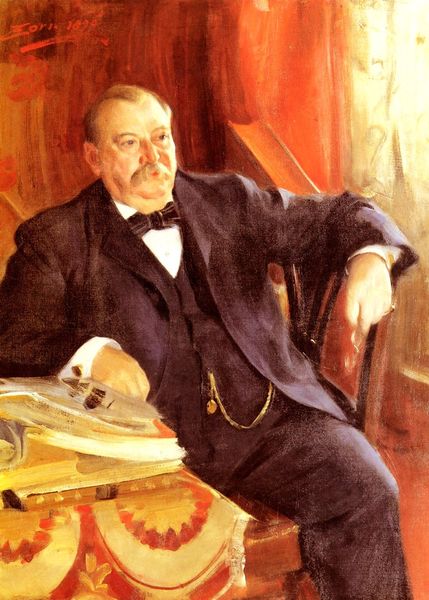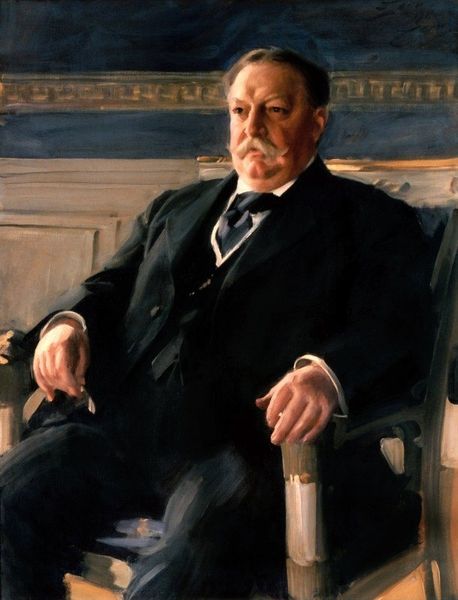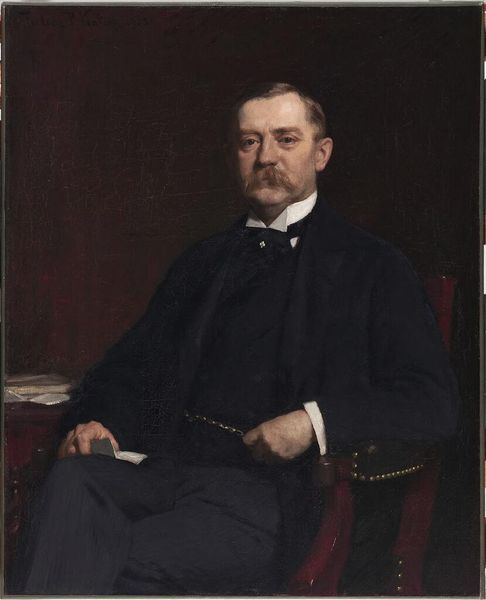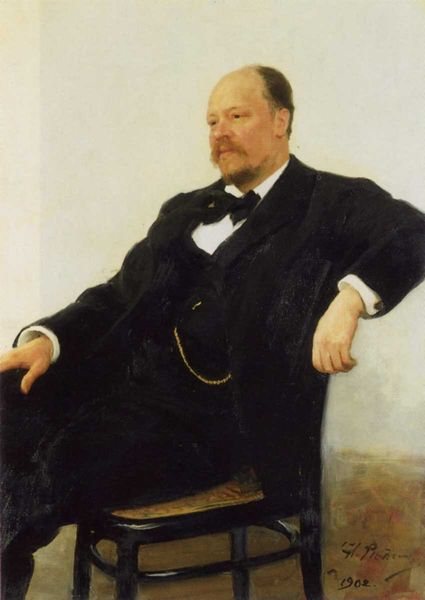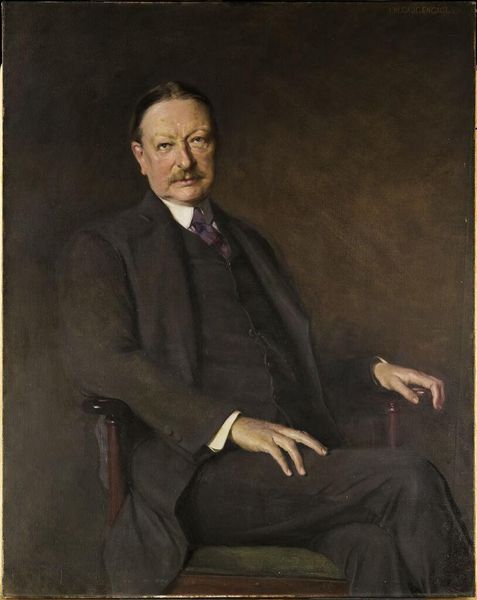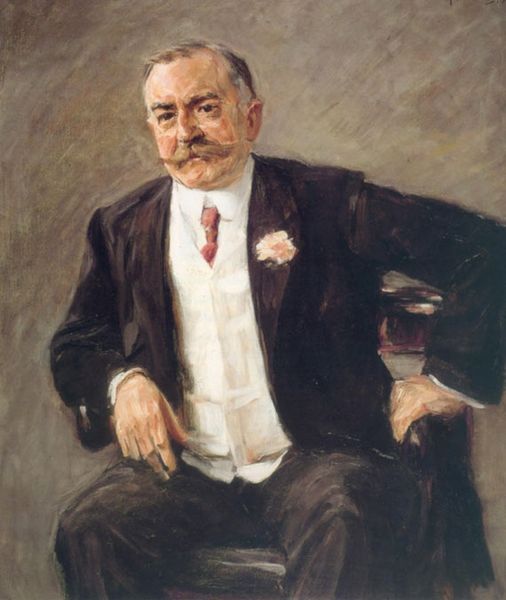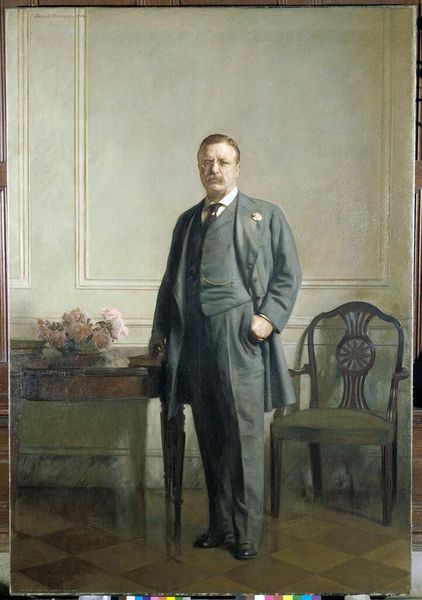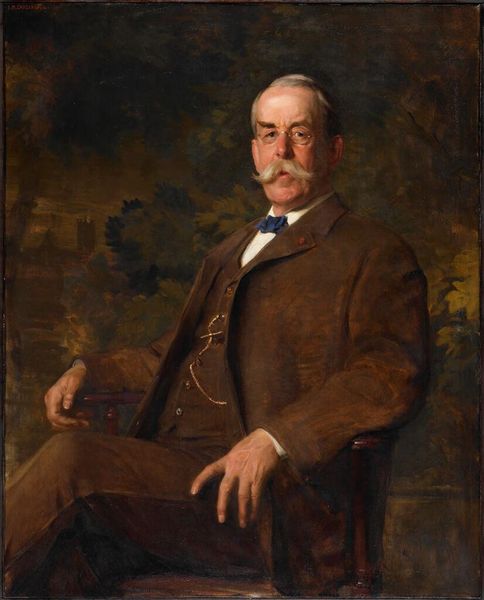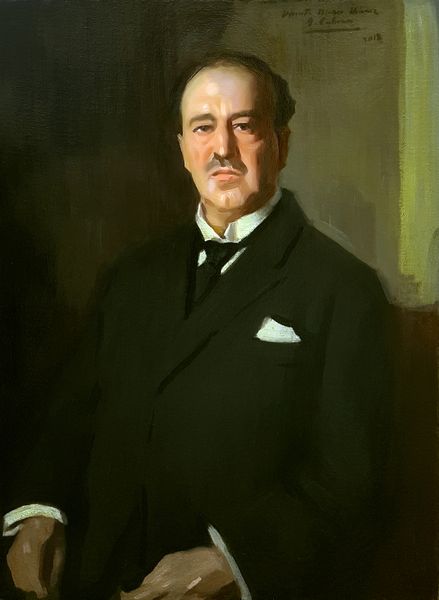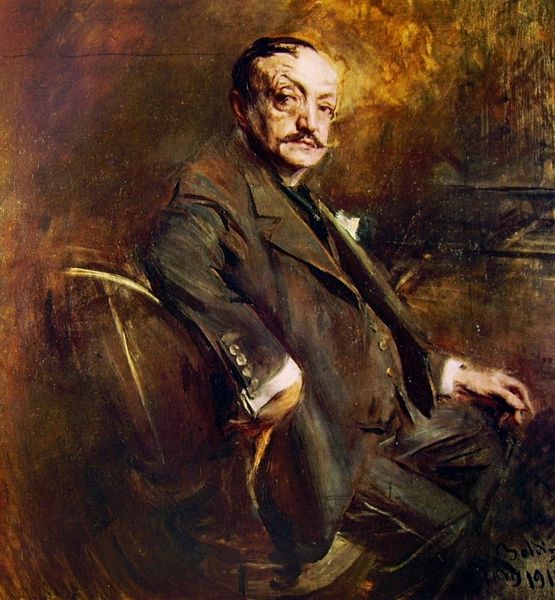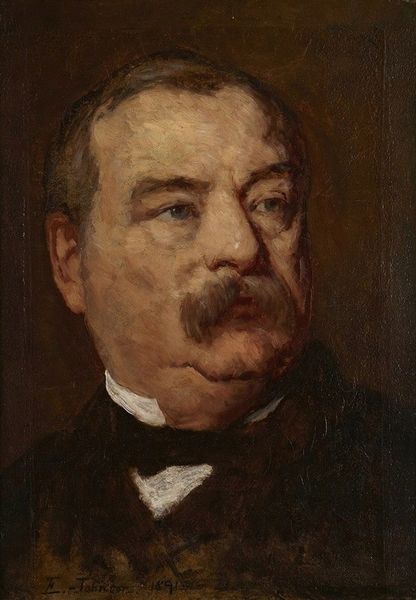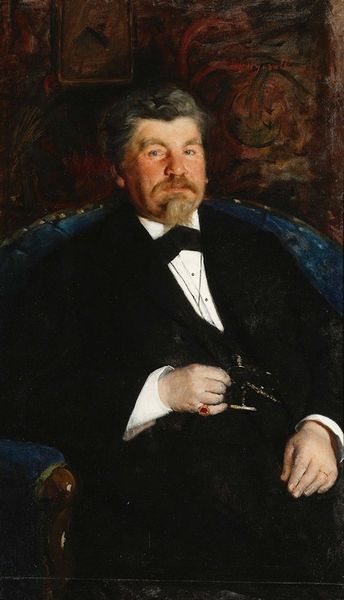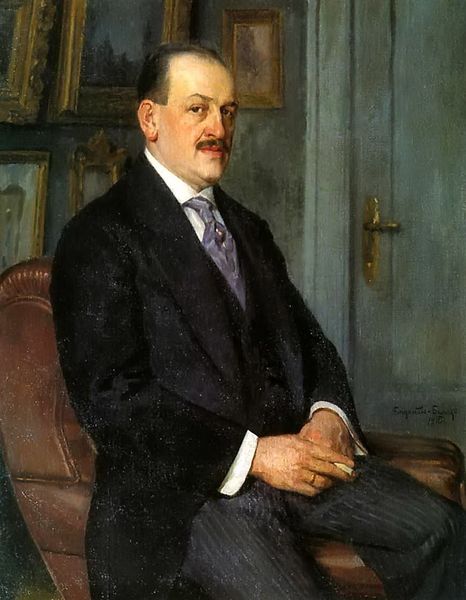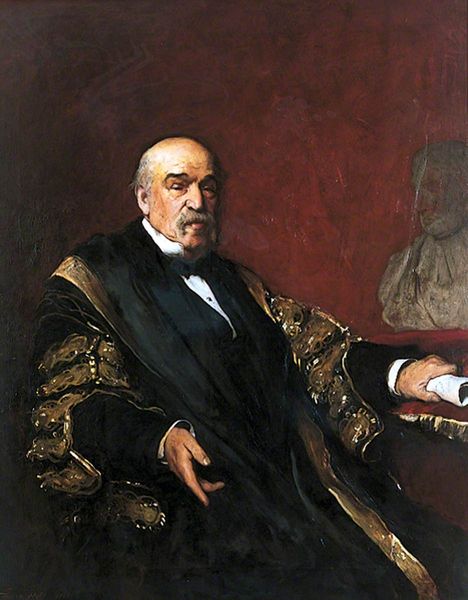
painting, oil-paint, impasto
#
portrait
#
figurative
#
character portrait
#
painting
#
oil-paint
#
portrait subject
#
impasto
#
academic-art
#
portrait art
#
realism
Copyright: Public Domain: Artvee
Editor: This is a portrait of Grover Cleveland by Anders Zorn, and it looks to be an oil painting. He seems…imposing, confident, perhaps a little weary. What stands out to you when you look at it? Curator: I see a depiction steeped in the visual language of power and masculinity. Look at the dark suit, the subtle glint of the watch chain, and the newspapers piled beside him - symbols of governance, commerce, and knowledge. Considering this image within the framework of late 19th-century American politics, we must ask: What narratives of leadership were being constructed and reinforced? Who was included, and more importantly, who was excluded from this vision of power? Editor: Excluded? Could you explain that more? Curator: Certainly. Portraits of this era often served as propaganda, subtly promoting certain ideologies. The composition suggests authority, but also access – we see him in what seems to be a moment of private contemplation surrounded by evidence of his public life. However, consider whose stories are missing from those newspapers, from that carefully constructed image of authority. The voices of marginalized communities, the struggles for suffrage and civil rights – were they given equal space in the narrative of America at that time? Editor: I never thought about portraits having a voice in politics and historical narrative. I can better understand what historical and social context this painting offers now! Curator: Exactly! Analyzing art through an intersectional lens allows us to challenge the dominant narratives and amplify the voices that have been historically silenced.
Comments
No comments
Be the first to comment and join the conversation on the ultimate creative platform.
